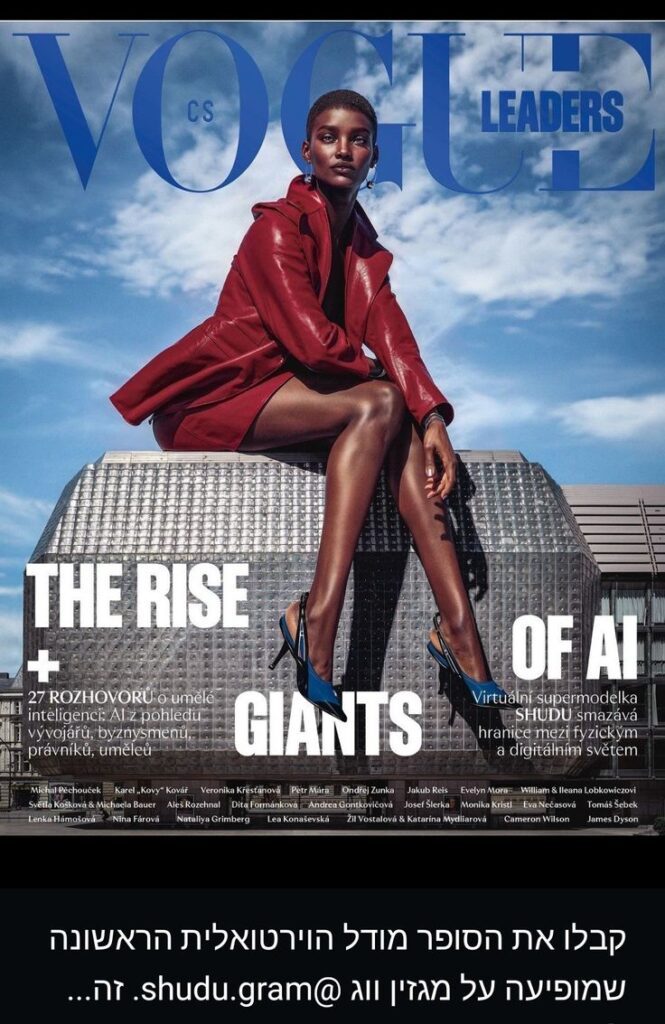AI-Generated Influencers: The Future of Digital Marketing or a Trust Crisis in the Making?
In 2025, the influencer ecosystem has evolved beyond what we once imagined. Today, brands are not just collaborating with human influencers — they’re creating their own. With the rise of AI-generated virtual personalities like Lil Miquela, Shudu, and Noonoouri, the marketing industry is exploring a new frontier. These digital characters are captivating audiences, leading high-end brand campaigns, and redefining how influence is built in the digital world.
But while the buzz is undeniable, this shift raises important questions: Can AI-generated influencers be trusted? What ethical concerns do they bring? And are we heading toward a marketing revolution or a digital trust crisis?
What Are AI Influencers?
AI influencers are computer-generated characters, programmed to look, talk, and behave like real humans. Built using advanced technologies like CGI, machine learning, and natural language processing, these virtual personas are typically managed by marketing agencies or tech companies. They “exist” on platforms like Instagram or TikTok, where they post regularly, promote products, interact with followers, and even share personal stories — all entirely scripted and controlled behind the scenes.
Despite their synthetic nature, many AI influencers have massive followings. In many cases, users don’t even realize that these accounts are not run by real people.
Despite their synthetic nature, many AI influencers have massive followings. In many cases, users don’t even realize that these accounts are not run by real people.

1. Cost-Effective Marketing
AI influencers don’t require travel budgets, accommodations, retakes, or fees for overtime. They’re available 24/7, can “shoot” in any location, and never age, fall sick, or negotiate contracts.
2. Controlled Branding
Brands have complete control over what an AI influencer says or does. Unlike human influencers who may go off-script, virtual influencers can maintain brand consistency and messaging precision at all times.
3. Global Reach
A single AI influencer can be localized for different regions. They can speak various languages, adhere to specific cultural norms, and be modified to resonate with any target demographic.
4. Scalability
Once developed, AI influencers can be cloned or adapted into multiple versions for different product lines, audience segments, or markets.

The Curiosity Factor: Why Audiences Engage
AI influencers aren’t just efficient — they’re fascinating. Their photorealistic features, unique “personalities,” and lifestyle storytelling generate intrigue. This novelty often translates into higher engagement rates, with many of them outperforming real influencers in likes, shares, and comments.
What’s particularly compelling is that many followers don’t initially realize these influencers are artificial. This ambiguity adds to the allure, but also brings up serious questions about transparency and trust.

Ethical Concerns and Challenges
As the line between reality and digital performance blurs, the ethical issues surrounding AI influencers are becoming more pressing. One major concern is deception — should followers be informed that they’re interacting with an artificial entity? If they aren’t, does that cross the line into unethical manipulation? Without transparency, followers may build emotional or purchasing trust on false premises, affecting their decision-making.
Another issue is data bias. AI influencers, like all AI systems, are trained on datasets that often reflect existing human biases. As a result, they may unintentionally reinforce harmful stereotypes or fail to represent diverse communities. This can have real-world implications in terms of representation and inclusivity.
The mental health impact of AI influencers also raises alarm. These virtual personas often appear flawless — from perfect skin to ideal body types, accompanied by consistently positive, polished content. This manufactured perfection may set unrealistic standards and contribute to body image issues, especially among younger audiences who are already vulnerable to social comparison.
Lastly, there are significant legal and regulatory gaps. Most countries currently do not have formal regulations addressing the use of virtual influencers. There are no universal standards around transparency, disclosure, or data protection in these contexts, leaving both brands and consumers in a legal grey zone. As AI influencers become more mainstream, the urgency for robust digital governance increases.

Limited but Emerging Data
Despite the rise of AI influencers, scientific research is still limited. Some of the unanswered questions include:
How do consumers respond to AI influencers compared to human ones over the long term?
What is the real return on investment (ROI) for brands using AI influencers?
How does prolonged engagement with AI personalities affect user psychology, especially among teenagers and young adults?
Until comprehensive studies are conducted, most of the industry is operating in a trial-and-error mode.
The Future: Co-Creation and Customization
Most experts believe that AI influencers won’t replace human influencers entirely. Instead, we’re heading toward a hybrid future where virtual and real influencers collaborate.
One interesting possibility is consumer-influenced AI training — where followers can help shape the personality, voice, and preferences of an AI influencer, leading to deeper customization and engagement. This could fundamentally reshape how brands interact with their audiences.
But this evolution must be matched with strong ethical frameworks, transparency policies, and regulatory oversight to ensure responsible use.
.
Conclusion: Are We Trading Trust for Innovation?
AI influencers represent more than a passing trend — they’re a symbol of how far digital innovation has come. Their rise has redefined influencer marketing, opened up new possibilities for branding, and created space for creative experimentation.
Yet, with great power comes great responsibility. Brands must balance innovation with integrity, ensuring that the use of AI doesn’t erode consumer trust or contribute to harmful social consequences.
For digital professionals — whether working with global brands or establishing local presence as the Best Digital Marketer in Malappuram — the real challenge is not just adopting the latest tools, but doing so responsibly, transparently, and ethically.
In the end, the question isn’t just how effective AI influencers are — it’s about how real we want our digital future to be.




